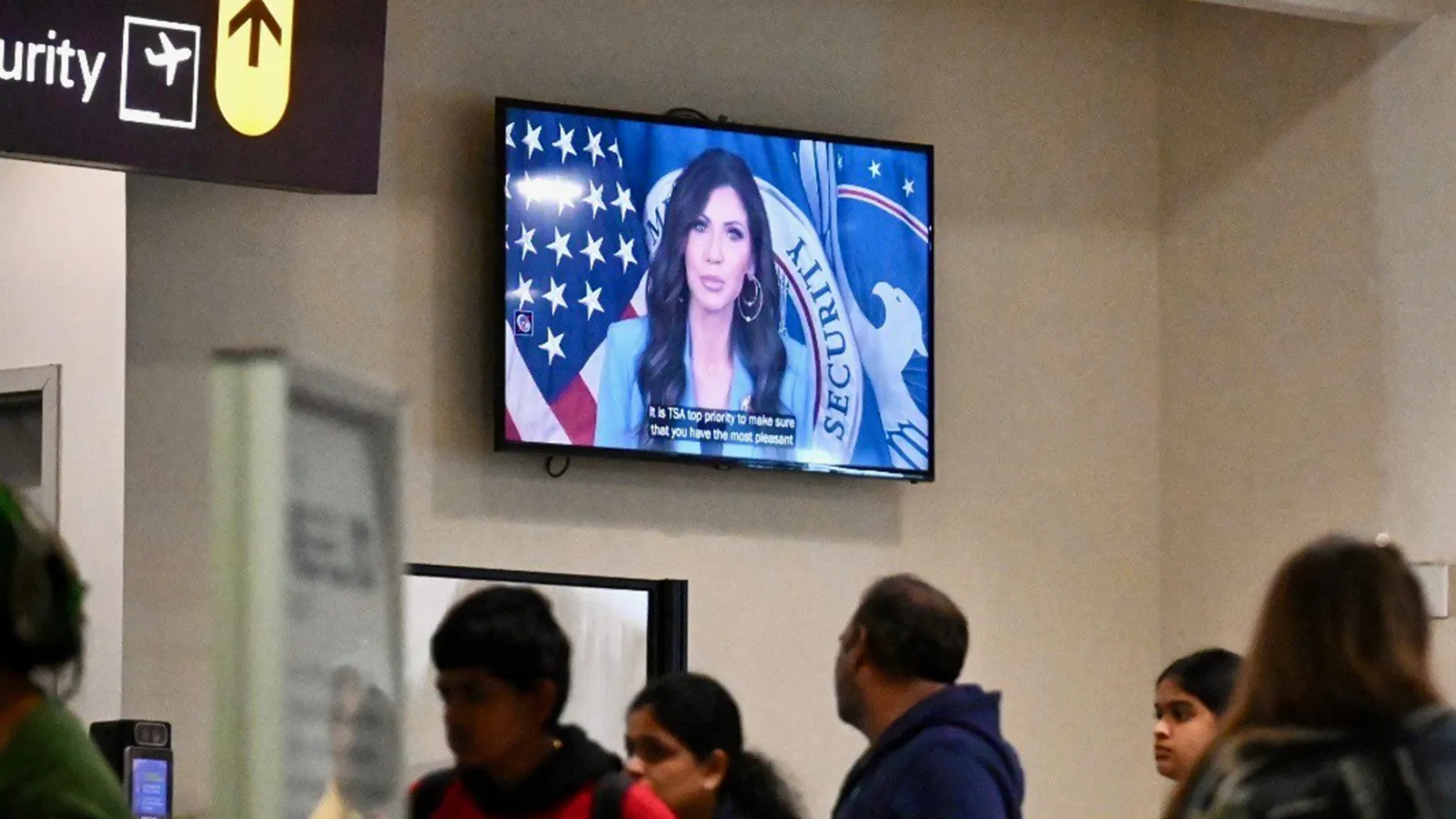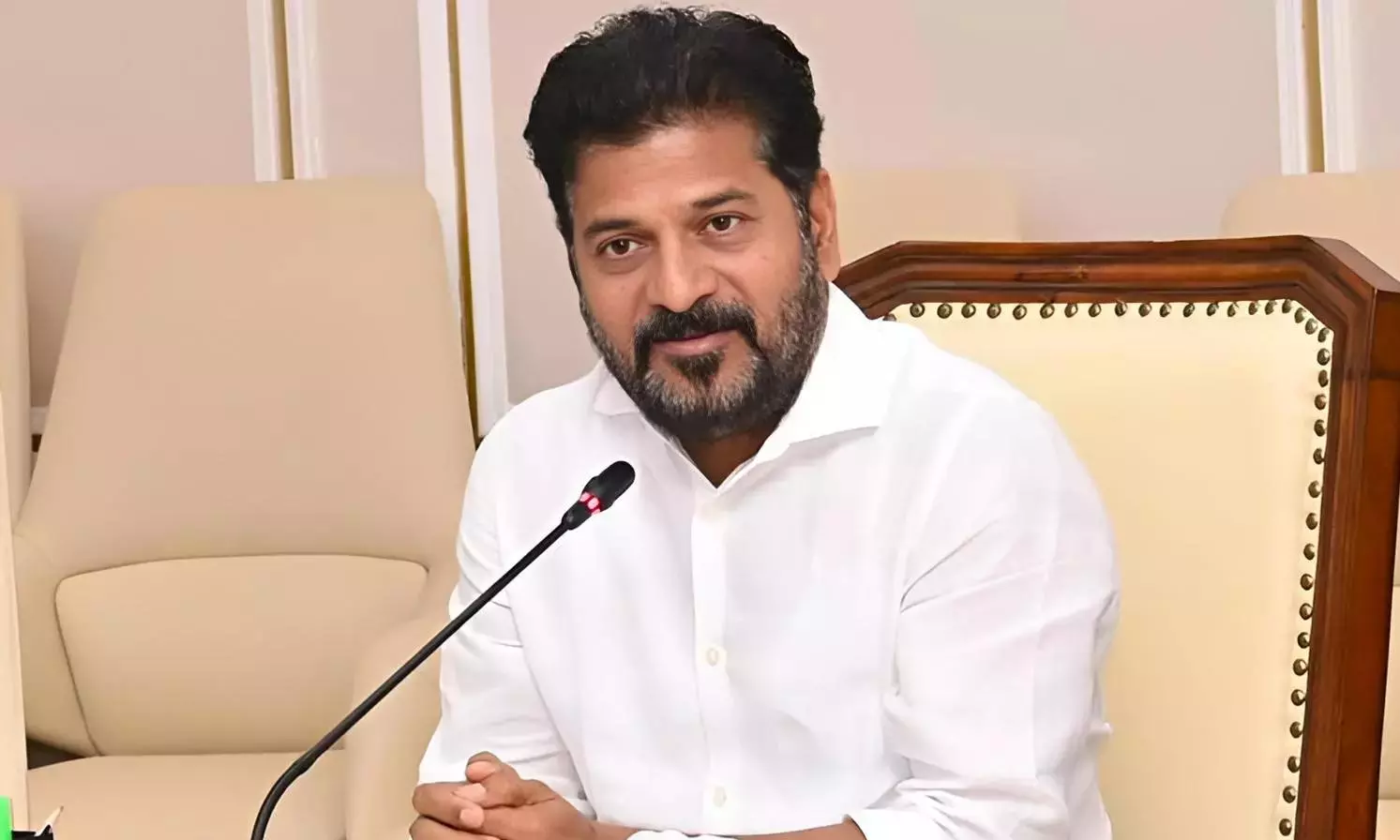Copyright Rolling Stone

As the government shutdown dragged through October, travelers at TSA checkpoints in airports across the country were subjected not only to agents telling them to remove their shoes and electronics, but also to a supposed public service announcement from Homeland Security Secretary Kristi Noem. “It is TSA’s top priority to make sure that you have the most pleasant and efficient airport experience as possible,” Noem, in her characteristic full glam, told passengers trapped in the American security state’s reconstruction of purgatory. “However, Democrats in Congress refuse to fund the federal government and, because of this, many of our operations are impacted — and most of our TSA employees are working without pay.” Several major airports declined to play the partisan video, with Las Vegas’s Harry Reid International Airport telling CNN that the messaging “did not align with the neutral, informational nature of the public service announcements typically shown at the security checkpoints.” Others accused Noem of violating the nation’s federal ethics laws, specifically the Hatch Act. Passed in 1939, the Hatch Act is one of those blurry laws that feels more like a way to codify a norm than an enforceable piece of legislation. The rule is fairly straightforward: federal employees cannot use their government position or government resources to advocate on behalf of a campaign or candidate, or use those same resources to engage in partisan political activity while on duty. Its invocation is usually greeted with the same seriousness as a sternly worded letter. During Trump’s first term, former White House Adviser Kellyanne Conway sarcastically called on the Office of Special Counsel (OSC) to let her “know when the jail sentence starts,” after an OSC investigation determined she violated the act on two separate occasions. Last month, the consumer rights nonprofit Public Citizen filed a Hatch Act complaint against Noem, accusing the secretary of violating the law by “producing and distributing a taxpayer-funded video that blames Democrats for the ongoing government shutdown,” that she then urged airports to display to passengers. The group also lodged a series of complaints against the Department of Education, Housing and Urban Development, and other executive agencies, over their use of their resources to display “explicitly partisan messaging on their [website] homepages blaming Democrats for the government shutdown.” Editor’s picks A separate lawsuit, supported by Public Citizen, accuses the Department of Education and other agencies of violating employees’ free speech rights through the forced use of “out of office” messages blaming the Democrats in the Senate for government closures, laid out as if they were written by the employee. When government workers attempted to edit the away messages to make their language politically neutral, they were overridden, according to the suit, which was filed by the American Federation of Government Employees. “We can’t actually sue under the Hatch Act,” Craig Holman — Public Citizen’s Capitol Hill lobbyist on ethics, lobbying, and campaign finance rules — tells Rolling Stone of the complexities involved in actually enforcing ethics laws. The enforcement of the Hatch Act is dictated by the Office of the Special Counsel, not through the courts. “So the lawsuit itself is based on First Amendment rights, where [for example] the Education Department changed all the employee out-of-office messages to basically preach partisan politics.” “We have obviously a hyper-partisan and polarized society, but when the administration starts spending tax dollars to promote its partisanship, that’s when it crosses the line,” he adds. Related Content There have, of course, been ethics scandals in past administrations, but past presidencies at least attempted to put up a veneer of self-oversight. In Trump 2.0, the president and members of his cadre are openly and enthusiastically flouting ethics laws, presuming they are immune to repercussions — whether it’s using taxpayer money for their personal benefit or using it to turn the federal government into a MAGA propaganda machine. “I remember going over to the East Wing and telling Laura Bush’s staff over there [that] we cannot, in our official capacity, endorse a charity, and that’s how strict we were on that with the first lady’s office,” Richard Painter — chief White House ethics lawyer for former President George W. Bush and current vice chair of Citizens for Responsibility and Ethics in Washington — tells Rolling Stone. “…in the now-demolished East Wing,” he continues, referring to Trump’s ballroom project. The White House has filled its website with comical propaganda to justify the massive, ethically dubious renovation. The site features a “timeline” of major changes to the residence, including the Truman restoration and the construction of the East Wing. Under recent Democratic presidents, the Trump administration chose to highlight controversies and scandals. The “Bill Clinton Scandal” comes in 1998, the first entry after the construction of the briefing room ending in 1973. In 2012, there’s a photo of former President Barack Obama wearing a turban, with the entry falsely accusing him of hosting a “Muslim Brotherhood” visit at the White House (the photo was actually of a trip Obama took to Kenya in 2006). For the Biden era, the administration includes a photo of Hunter Biden smoking a cigarette in a bath tub, labeled “Cocaine Discovered,” writing that “speculation” suggested that a baggie of cocaine found in the West Wing lobby belonged to the former president’s son. No such evidence exists. The next entry notes Biden hosting “transexuals” at the White House in 2023. The White House website also includes a banner with a clock tallying every second that “Democrats Have Shut Down the Government.” Other government websites that are ostensibly supposed to be nonpartisan have similar notices, as Public Citizen notes in its Hatch Act complaints. One on the website of the Department of Agriculture, for example, accuses Democrats in Congress of keeping the government closed “to hold out for healthcare for illegal aliens and gender mutilation procedures,” at the expense of SNAP benefits for poor families. In a statement to Rolling Stone White House spokeswoman Abigail Jackson wrote that “it’s an objective fact that Democrats are responsible for the government shutdown, the Trump Administration is simply sharing the truth with the American people.” The Department of Homeland Security did not address the complaint filed against Noem, but instead told Rolling Stone that “Democrats in Congress refuse to fund the federal government, and because of this, most of our TSA employees are working without pay.” With the administration leading the charge — and signaling that existing laws can be ignored without consequence — some Democratic states have started posting similar notices blaming Republicans to official websites. Ethics experts agree the laws are being bent, if not outright violated, while acknowledging there’s virtually no chance they will be enforced. Two pieces of legislation cover the vast majority of anti-corruption ethics law in the federal government: the aforementioned Hatch Act, and Title 18, which prohibits the use of congressionally appropriated dollars to influence or attempt to influence elected lawmakers. Part of the problem is that ethics enforcement for a president and Cabinet members like Noem is handled within the executive branch. “The real agencies in charge of enforcing the law — the Department of Justice, the attorney general’s office, the Office of Government Ethics — are all dominated by Trump loyalists,” Holman says. “We’re not seeing the administration itself have any sort of accountability, because it runs everything. It runs not only the White House, but it runs the ethics agencies that are supposed to be enforcing the laws.” Painter adds that Title 18’s anti-corruption provisions — similarly to the Hatch Act — do “not apply to the president and the vice president. They also don’t apply to members of Congress who trade stocks while they vote on bills and so forth. So President Trump has decided to take advantage of this and make an enormous amount of money for himself.” Painter’s career has given him a front row view of a callousness towards ethics norms that transcended party affiliation — a slow erosion that began almost immediately after former President Jimmy Carter signed the Ethics in Government Act of 1978 into law in response to the debacle caused by President Richard Nixon’s scandal-plagued presidency. “During the four years in between [Trump’s terms], the Biden administration didn’t really set a particularly high standard in terms of ethics. It was better than the first Trump administration, but we didn’t have our Jimmy Carter moment where we said, ‘We really need to clean it all up,’ Painter says. Using federal channels to blame Democrats for the government shutdown may seem like a trivial concern, but it speaks to the totality of the administration’s unprecedented disregard for basic ethical norms — which has also resulted in some taxpayer-funded propaganda, but also, as Holman puts it, Trump “literally reaping at least about $3.4 billion in personal profit,” by violating “the spirit” of Title 18. And if the man at the top sees the law of the land and the norms of his office as negligible, why would his advisers and secretaries hold themselves to a higher standard? The only real recourse against the administration’s corruption lies in the hands of lawmakers. Trending Stories “Paying money to get access to government officials may not be a crime under our criminal statute, as interpreted by the U.S. Supreme Court, but it meets the constitutional definition of bribery,” Painter notes, pointing out that the framers — jaded by their English counterparts — had included broad anti-bribery language in the founding documents — and provided the remedy of impeachment for such matters. “Congress isn’t doing its job,” he adds.



